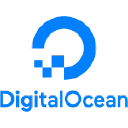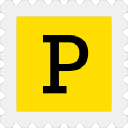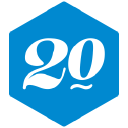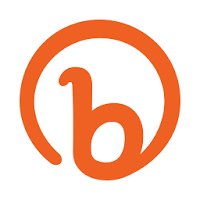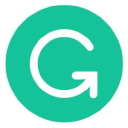
On Growing A Cheap Flight Deals Platform To 15 Employees
I'm Naveen Dittakavi from Atlanta, Georgia, and I'm the CEO of Next Vacay. We're working to help people travel more by uncovering hidden, incredible flight deals so that they can go on dream trips that they thought were never possible. We’ve sent people to Australia for less than $600 USD, Japan for under $400 USD, Hawaii for $300 USD and more. It’s not only overseas trips, but we also look for incredible domestic fares and sometimes these can have a huge impact on connecting families.

We find that when people travel more, they come back refreshed, renewed and better global citizens with a more informed perspective of the way that other people in other cultures live their lives. This helps them appreciate what they have at home and also think about what they might consider doing differently.
We’ve come a long way since we started back in April of 2016. Not only has our team expanded from my wife and me at our kitchen table to more than 15 team members in over 10 countries, but our membership base has grown as well. Originally, we were mostly helping friends and family find these great deals but now we have a healthy member base, not only in the United States, but we also serve members in Europe, Australia, and Canada.
Our flagship product, a Next Vacay membership, is an email deal alert system that takes away the time-consuming part of searching for a good flight.

Our members can sit back and relax and let the deals come to them several times a week via email. An added benefit is, since we’re scouring the web for deals constantly, we often send our members low priced flight options for places they wouldn’t have considered going before our service brought to their attention how affordable the destination is.

What's your backstory and how did you get into entrepreneurship?
I've been an entrepreneur since I was a little kid. I was always fascinated by creating solutions to problems and seeing the delight when other people enjoyed an experience I crafted. I think my first entrepreneurial endeavor was when I was 10 years old. I created a bulletin board service (BBS) in Atlanta out of my parent’s basement. It was a fun little exercise. I charged my friends $5 for access and we would all get online and play text-based games with each other over the BBS.
Once I saw that I could very easily create fun and engaging solutions using the computer I was hooked. And from there I set off to create applications to solve problems. In high school, I started doing e-commerce consulting in high school. Then at Georgia Tech, I studied computer science and began consulting, creating web applications for clients, and creating SAAS solutions for my school. I would look for every opportunity to create licensing relationships because I was always optimizing for long term solutions to client problems.
A mistake I made early on was that like many people, I thought that every solution warranted a technical solution. It took me a few trials of spending dozens, if not hundreds of hours, on developing applications to find that the clients were satisfied with solving their current problem using a paper-based solution that just got the job done. It was disappointing to realize that not everyone viewed optimization in the same way that I did and didn’t understand that a software solution would be far superior to a manual solution. But it helped me realize early on that the value to a customer is not in the technology, the value of the customer is to picking the solution and moving on and focusing on their core area of expertise.
That helped me realize and whittle down my ideas to those that only produced high value to the client versus focusing on cost-saving solutions or even business optimization solutions. I found that if I could help the client grow their business or further their dreams, that was an easier sell than trying to convince a client that I could help them save money or save time through software optimization.
While I did plenty of consulting in high school and college, it was all on the side as I was focusing on my education. When I graduated college while I did have a business and a corporation, it wasn't large enough to support my cost of living even as a 22-year-old recent college grad. So I ended up moving back home in the suburbs of Atlanta so that I could give myself more runway to figure out my next steps.
I ended up taking a software contractor position with BellSouth, a telecom in Atlanta, making well over $100,000 a year. But I only kept that position for a year because I began getting bored. I appreciated the flexibility that the position offered. As a contractor, I could set my own hours and contribute where I wanted to and I would end up spending more time at Starbucks and taking prospects out to long lunches
Eventually, I decided that if I was going to make the leap, now was the time because I was beginning to gain traction with my consulting practice. There was a period where AT&T in Texas announced that they were going to buy Bell South. That created a scare amongst all of the managers, including our directors.
During a merger, there tends to be downsizing of management. So the managers brought all of the contract developers in and began removing a lot of the perks of the gig. They began instituting core hours and saying that they were going to increase demands on us because they needed to have more to show for their business unit.
I think it was the core hours that ticked me off the most. I was just a 22 or 23-year-old kid, and my thought process was, “Wait? Who are you to tell me what time to show up to work?” So I ended up coming home very angry and frustrated that this business was going to force me into being a 9-5 guy.
I decided to present my case to my parents, explaining to them why I thought that now was the time to jump into full-time entrepreneurship. I crafted a PowerPoint and explain to them the pros and cons that I had prospects and I was ready to make a true entrepreneurial career happen.
I think they realized that if It didn’t work out and I wanted to go get another six-figure job, I could do so pretty easily. And that they might as well let me try something out now while I was young, rather than later on when there are more risks, so got on board with it. The next day, I turned in my notice. I got a lot of laughs from my colleagues there who all realized that I was never meant to be an employee. So they just chuckled at the fact that the minute that someone told me that I had to show up for work the next day at 9, I show up and quit. Which is something I still find hilarious to this day! But when you know you’re meant to be an entrepreneur, you know.
Take us through your entrepreneurial journey. How did you go from day 1 to today?
After I decided to go into entrepreneurship full time, I began going to a lot of startup events, helping people refine their ideas. I found that by adding value first and becoming a resource to others, leads would naturally come to me. There are a lot of technology meetups in Atlanta with aspiring entrepreneurs, including a lot of people who are not technical but are looking for technical co-founders.
While I was not interested in being anyone's technical co-founder, I was happy to explain to them how they could approach building their solution. Ultimately, I ended up spending a lot of time with them helping them out over coffee, just being a good person and resource for them.
Eventually, if the conversation went that way, I’d let them know that I had a team that knew how to build those things and I’d offer to help build a prototype or v1 if they needed. Because I’d taken the time to add value and become a trusted resource for them, many times, I ended up earning their business and over time it became easy to land client projects that were well into five figures.
I did that for quite some time and was enjoying life. I traveled a lot, I spent a lot of time seeing the world with my friends. When they were on their spring breaks for grad school, I would organize a trip and we would go to Europe or Asia, and we had some great times but then the recession happened.
During that time, a lot of the people who were coming to startup meetups stopped coming. The numbers dropped because a lot of them realized that they needed to focus on keeping their own boat afloat and they needed to put their entrepreneurial dreams on hold. With that reluctance to spend money, a lot of my easy referrals and sales began to dry up. I recognized that I didn't have a formal system of prospecting, instead, I was utilizing a makeshift method of referral marketing and becoming a human lead magnet. That doesn't work in a down market so I began to get frustrated -- here I am now, so many years into having a consulting practice, and I still don't know what I'm doing.
Instead of beating up on myself, I decided to seek solutions to this problem. I said, “Well if I don't know what I'm doing, who does know what they're doing?” I came across an online course that changed my life. I realized I needed a system or pattern I could model and use to land more 5-figure deals and so by taking that course I learned a very systematic way to generate sales that I’d never done before. The true evidence of success was that I was once again able to start closing deals during the recession, only this time they we're well into the six figures.
So I had gone from a kid who was developing some applications in his head and in prototypes and dependent on selling them to someone else by sheer luck, to someone who was being a helpful resource and elite human lead magnet to the community, to a formal consultant who knew how to develop a system to prospect and close leads.
I continued down this pathway for a number of years and then got involved with my girlfriend (now my wife) and again started to feel frustration. This time, it was because I could see that there would always be a cap on my income and my lifestyle with a consulting practice.
I didn't want that. Before a relationship, when I didn’t have anybody else I wanted to spend my time with, it was easy to just make more money by taking on more projects and burning the midnight oil. But once you have somebody else in your life who's not going to appreciate your work taking up all your time, I realized that I have goals I want to meet, but I didn't know how I was going to meet them with a time-based method of doing business.
Ultimately, I realized that I wanted was my freedom back. One might argue that by having a good income from self-employment, that you have freedom, but what I’d ended up doing was shackling myself down. Instead of one boss at Bellsouth, I ended up saddling myself with dozens of bosses between all my various clients.
I realized that I needed to find a way to create a new business independent of clients and independent of my revenue based on my time alone. That began my search for understanding how to develop products. I went back to the same source of where I’d taken that original online course and happened to be in the right place at the right time. I had the opportunity to be mentored by the founder directly and participate in some beta courses and I took the product development principles that I learned and applied those to creating software products.
I had a few failures early on, but then I found the right fit with Next Vacay.
We started Next Vacay on our dining table. My wife and I would work together to find deals, validate them, and would send them out using Mailchimp.

As more and more people began hearing about Next Vacay we started getting members signing up from all over the world. I realized that there wasn’t enough time in the day for just my wife and me to search for deals out of each city where we had members. We were constantly working. Even when we were traveling for pleasure we would squeeze in time to search for deals for our members. I knew that I had to scale the way we were doing things if we were going to be able to handle servicing more airports and more members.

I tapped the strengths and skills that I learned in college and began putting in 18 hour days writing a custom application that would allow me to hire people to help search for flights. It took about five 18 hour days but I got it built and then started hiring people to help me.
I had built in very strict controls in the first version of our software. Like most entrepreneurs, I had a hard time truly letting go. In order for a deal to get dispatched to our members, it required a passcode that only I knew and that meant that I would validate each and every deal that was found to ensure that it met our strict criteria of what is a quality deal. The problem with this is that the people I hired started producing excellent work and I quickly became a quality control bottleneck.
I recognized that I needed to remove this bottleneck by training the deal researchers on how to ensure their deals meet our criteria and standards and then trust them to do right by our members. This change allowed me to remove myself from backing things up and increased the number of deals our members began receiving. My wife and I could breathe again, briefly.
Over time as the team began to grow, we started to have to define work shifts and assign areas of responsibility that researchers were in charge of. Our customer service needs were also growing as our membership base grew. We tried working with outside agencies to handle customer service but the response times and quality of the responses weren’t meeting our level of expectations. My operations manager convinced me to start bringing processes fully in house and she built out a team and a process around various business units that were not standardized. Today our business has management controls and standardized processes wherever possible. It was a tough transition from a messy startup to a process-driven small business but the investment was well worth it.
How are you doing today and what does the future look like?
We’re profitable and growing rapidly. We are one of the market leaders in the space and we are wholeheartedly committed to customer satisfaction. We have made tremendous strides in the past year, moving from me trying to have my fingers in everything to bringing on a team of people committed to doing good work and committed to our mission who love our product and our members and doing everything they can each day to continue improving efficiency and growth.
We get a fair amount of media attention but most importantly, we're helping countless people achieve their travel dreams and, and as an entire team, that's what makes us incredibly happy. Recently, my wife and I have decided to give a sizable amount of our profits to charitable causes that are important to us which has added another level of satisfaction to running a successful and growing business.
The future for us is in further expansion of our current business into new markets. We want to add service to additional airports and work on increasing the number of deals we send to our customers to help them travel even more than they are now. We’re also committed to improving customer satisfaction and our relationship with our customers. We had some struggles in the beginning when it was just me and my wife trying to manage everything and get back to each and every person ourselves so now that we have enough team members in place to help out with this, we’re working on providing not just customer service, but outstanding customer service. We want our members to think of us as not just a travel company with expert advice, but as their best friend who helps them travel more. To this end, we’re working every day to increase our knowledge as a team so that we can go above and beyond in providing them travel tips and advice and personalized help and answers to their every travel question.
Through starting the business, have you learned anything particularly helpful or advantageous?
The number one thing that I learned was the need to get myself out of being the bottleneck in the business. Because I started this business with just me and my wife, I’d been involved in every little piece of it since the beginning. It was difficult to trust turning pieces of that over to others and that they would do it in the same way that I needed it to be done. There was also so much on my plate, I couldn’t even fathom taking the needed time away to hire and train someone. But it had to be done. A business can only grow so far before one or two people can’t manage it anymore.
I was very fortunate in hiring the right people to help take over a lot of the operational load and to help me become more streamlined and organized. I’ve hired people whose strengths complement my weaknesses. I’m a creative guy, an idea guy, and at the beginning of this business I’d wake up and try to figure out how I was going to spend my day, with a lot of interesting ideas pulling me in various directions, while simultaneously trying to put out fires that kept popping up in the business.
Nowadays, my days are planned out and organized. I have operations people that manage the day to day issues that used to keep me busy and our leadership team has clear roles and autonomy to make a number of decisions without my input.
Our Vice President helps me stay focused and on track with the high-level initiatives that we are looking to push forward. She ensures that I’m working on the key decisions and tasks that I must make in order to move the company forward -- and also gets me the creative time that I need to ideate for the future. This working relationship that we’ve developed allows me to do what I’m good at -- coming up with ideas and developing strategies for growth -- and then hand off execution to her.
I won’t lie, it was very difficult for me -- someone who was always a solo-preneur -- to get to a place where I had multiple team members and could delegate items to them and then let go. There was a lot of struggle and stress that went into making that happen. It probably took a good two years to get to a mental place where I was okay with getting out of a lot of the day to day decisions of the business, focusing mostly on new areas, and trusting that things would get done. It was difficult but necessary, and our growth over the past year has been directly correlated with my removing myself as a bottleneck and handing over more autonomy to my team and trusting them with their roles.
What platform/tools do you use for your business?
We use a variety of tools and platforms and over the years we have experimented with changing out some of them as our company grows. We’re currently using Happy Fox platform for our customer service email tickets and live chat. Hively is a nice tool we’re currently experimenting with so that customers can rate us on our responses to every email. We’re then able to follow up with them there for more information. Another nice benefit of it is that we can celebrate individual team members on a job well done when a customer leaves them a wonderful comment.
Customer rating: Wow!
Customer comment: "Super fast reply and made me very confident in your researching my question. In today’s world, having a customer service analyst who truly goes that step to connect with the client is so valuable. I hope they are treating you well - because this is the kind of reply and connections we are always looking for in the healthcare field. Have a super day!"
A tool called Agorapulse helps us moderate our social media comments and provide customer support on our Facebook and Instagram profiles. Like many companies, we communicate on a daily basis with Slack and assign tasks to each other using Asana.
We utilize a trusted review platform called Trustpilot to give our customers a reliable place to leave reviews on our business and read the reviews of other customers who have used our service.
Of course, we also use standard things like Google Analytics for understanding our traffic and our patterns.
Our flagship product is a custom-built software, originally coded out in my home office and improved upon at my kitchen table when my wife and I were first starting out. We’ve since added many improvements to that software and our other internal platforms. Truly though, we don’t think so much about the platforms and the tools that we use in the business, we think about goals and how we measure those goals.
What we’ve done recently is to take a step back from getting too lost in the nitty-gritty features of a tool and we’ve thought more about, “What is the outcome that we’re trying to get, how would we measure that outcome, and then we go off to find the tools that will help us measure and analyze the outcomes for that scenario.
What have been the most influential books, podcasts, or other resources?
I read the book The E Myth about 15 or 20 years ago but much of it didn’t really apply it until recently. I think there’s incredible value in exposing yourself to a lot of things at a young age that may not be relevant at the time that you may eventually come to understand when you develop a larger business.
Art of the Start, The E Myth Revisited, Business Model Generation, those books were very helpful early on in terms of getting into the mental mindset of what it takes to get a business going and get the structure set up in a way that is best for the business and not just best for you.
In terms of podcasts, How I Built This with Guy Raz is a great one. I also have to give a lot of credit where credit is due and mention the guys at Basecamp (formerly 37 signals), Jason Fried and DHH. I appreciate the way that they conduct their business, the way that they treat their staff and the way that they look at the world in terms of wanting to solve problems in a very realistic manner. I've been a longtime reader and fan of Signal V. Noise and loved the original 37Signals podcast. I also enjoy the newer podcast, Rework.
Advice for other entrepreneurs who want to get started or are just starting out?
I think that if you continuously remind yourself of this one thing, it will answer all your problems. That one thing is the age-old advice that “sales cures all.” If you can find a solution to a problem that your customers have, this burden to them that they have a burning desire to solve, then you have an opportunity to create a solution.
And if you're able to craft your message and your sales process to successfully make sales, then you have a business. When I meet people who are thinking about businesses, whether it's a medical practice or whether it is a software business, I tell them, “You need to find your customers.” Without your customers, you don’t have anything. Whether you have ideas on paper, or you have a tool, you still don’t have anything.
So instead, go find your customers. Confirm that they will pay you for it, and then go build a business around it. And if you're able to create a business that can have repeatable sales and a repeatable sales channel then you have a business that it is worth putting your blood, sweat, and tears, and most importantly, time invested into.
Where can we go to learn more?

Download the report and join our email newsletter packed with business ideas and money-making opportunities, backed by real-life case studies.

Download the report and join our email newsletter packed with business ideas and money-making opportunities, backed by real-life case studies.

Download the report and join our email newsletter packed with business ideas and money-making opportunities, backed by real-life case studies.

Download the report and join our email newsletter packed with business ideas and money-making opportunities, backed by real-life case studies.

Download the report and join our email newsletter packed with business ideas and money-making opportunities, backed by real-life case studies.

Download the report and join our email newsletter packed with business ideas and money-making opportunities, backed by real-life case studies.

Download the report and join our email newsletter packed with business ideas and money-making opportunities, backed by real-life case studies.

Download the report and join our email newsletter packed with business ideas and money-making opportunities, backed by real-life case studies.
